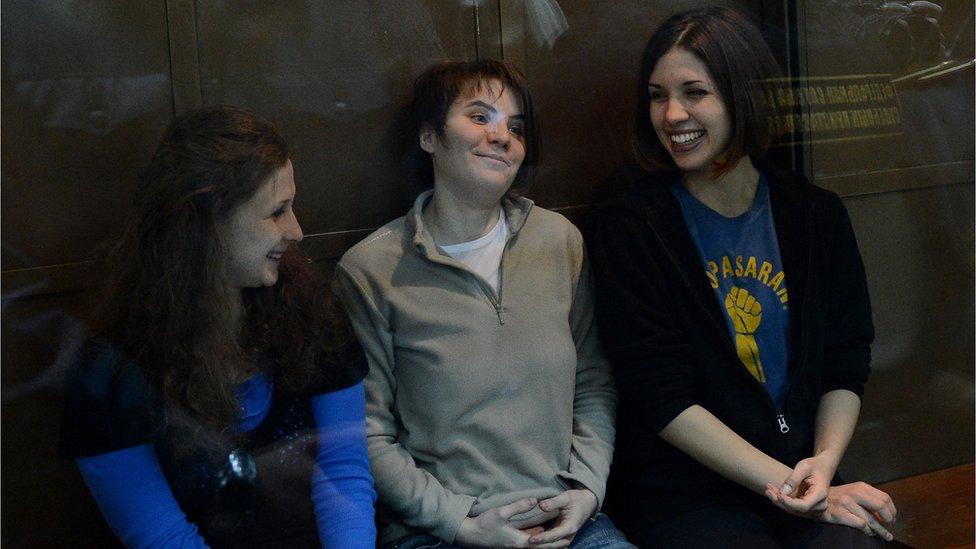Pussy Riot's Pyotr Verzilov 'likely poisoned', doctors say
- Published
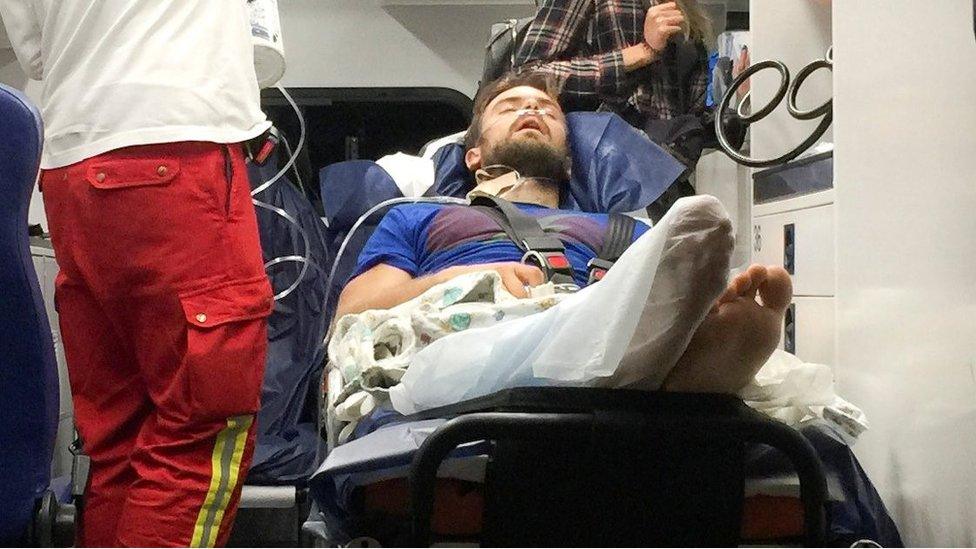
Pyotr Verzilov arrived in Berlin on a special medical transport plane
An activist with Russian protest group Pussy Riot who was taken ill after a court hearing last week was probably the victim of a poisoning attempt, German doctors treating him have said.
Pyotr Verzilov, 30, was flown to Berlin from Moscow on Saturday after arriving at hospital in a serious condition.
His symptoms reportedly included losing his sight and the ability to speak.
Mr Verzilov is best known for taking part in a protest at the Football World Cup Final earlier this year.
Speaking at a news conference on Tuesday, Dr Kai-Uwe Eckardt from Berlin's Charité hospital said it was "highly plausible that it was a case of poisoning".
He added that Mr Verzilov is out of danger, but the substance used has not yet been identified.
Nadya Tolokonnikova, a fellow Pussy Riot member and Mr Verzilov's estranged wife, told German tabloid Bild at the weekend that she believed he had been "deliberately poisoned" for either "intimidation or even an assassination attempt".
He is said to have spent several days in intensive care before regaining consciousness on Friday,, external friends told the Meduza news website.
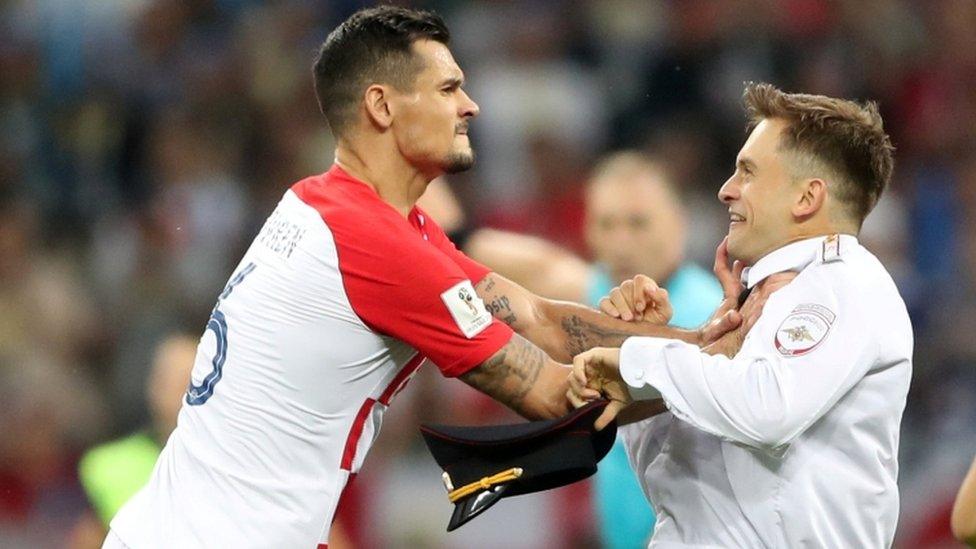
Mr Verzilov was jailed for 15 days for his part in the World Cup pitch invasion
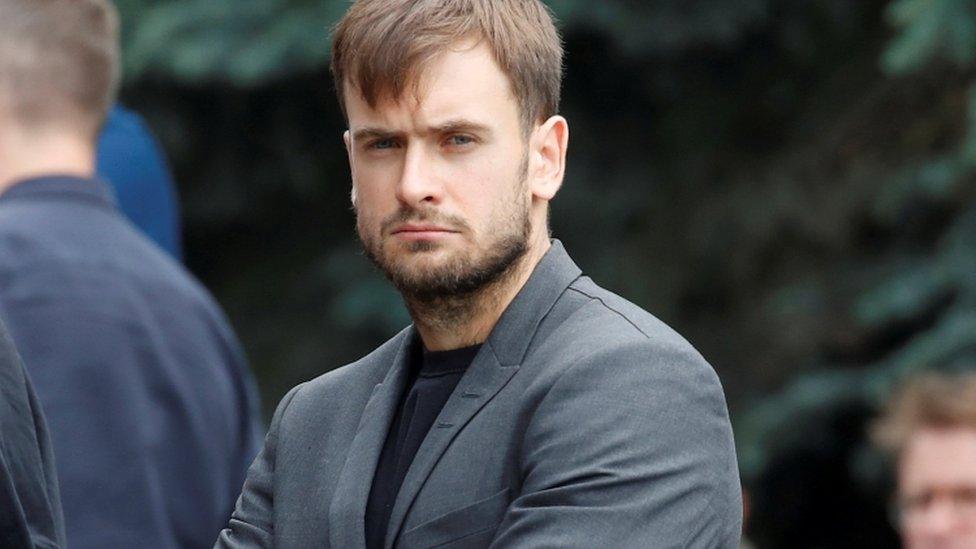
He is a vocal critic of the Kremlin
Mr Verzilov has been a prominent figure in the anti-Kremlin opposition for several years, including his work with Pussy Riot.
The group's Twitter account posted a photograph of members posing with a banner alluding to the alleged poisoning on Friday.
Allow X content?
This article contains content provided by X. We ask for your permission before anything is loaded, as they may be using cookies and other technologies. You may want to read X’s cookie policy, external and privacy policy, external before accepting. To view this content choose ‘accept and continue’.

Mr Verzilov holds both Russian and Canadian citizenship.
Earlier this week Canadian Prime Minister Justin Trudeau said the situation was a "concern, obviously, given actions of recent months by the Russians in the UK" - referring to the poisoning of a Russian ex-spy and others in Salisbury.

Other alleged Russian poisonings
Mr Verzilov's case is not the first suspected poisoning of those who have criticised the Kremlin or senior Russian figures. Russian authorities often blame their symptoms on medical conditions or allergic reactions.
2017: Pro-democracy journalist Vladimir Kara-Murza survives a suspected poisoning, two years after he suffered multiple organ failure in a similar incident.
2004: Ukraine's former President Viktor Yushchenko is poisoned with toxic chemical dioxin while running against Russia's preferred candidate.
Ukraine's former president Viktor Yushchenko was poisoned in 2004
2004: Anna Politkovskaya, an investigative journalist and an outspoken critic of the Kremlin's policy in Chechnya, falls seriously ill while travelling by aeroplane. She later says she believes she was poisoned. She is shot dead outside her home in Moscow five years later.
2004: Russian businessman Roman Tsepov, who ran a security agency which guarded Vladimir Putin before he became president, dies in St Petersburg. His doctor tells the agency for Journalistic Investigations in St Petersburg: "It was poisoning without a poison... It was as if his immune system was switched off".
2003: Yuri Shchekochikhi, an investigative journalist and a liberal lawmaker, dies after what authorities say is an acute allergic reaction. However, the Committee to Protect Journalists reports that his relatives and colleagues blame his death on poisoning.
Suspected poisonings inside the UK
2018: Former Russian double agent Sergei Skripal and his daughter Yulia are found unconscious on a bench in the town of Salisbury. The UK government says they were poisoned with a military-grade Novichok nerve agent.
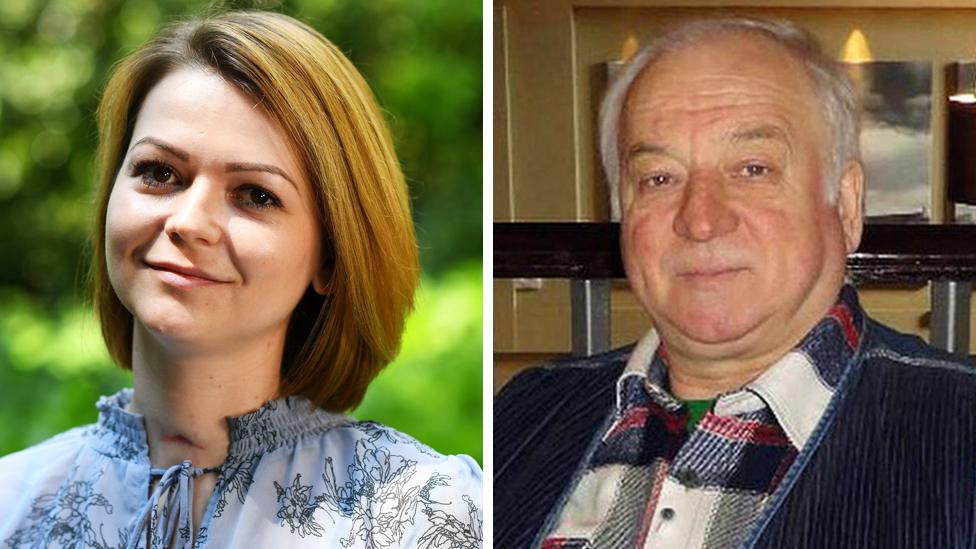
2006: Former Russian spy Alexander Litvinenko dies after being exposed to the highly radioactive Polonium 210. A public inquiry into his death found he may have been poisoned twice in the weeks before his death.
Russia has denied any involvement in both the Skripals' case and Litvinenko's death. In both cases, UK authorities named Russian suspects they believe were behind the poisonings, but Russia maintains their innocence and has refused to extradite them.

- Published16 September 2018
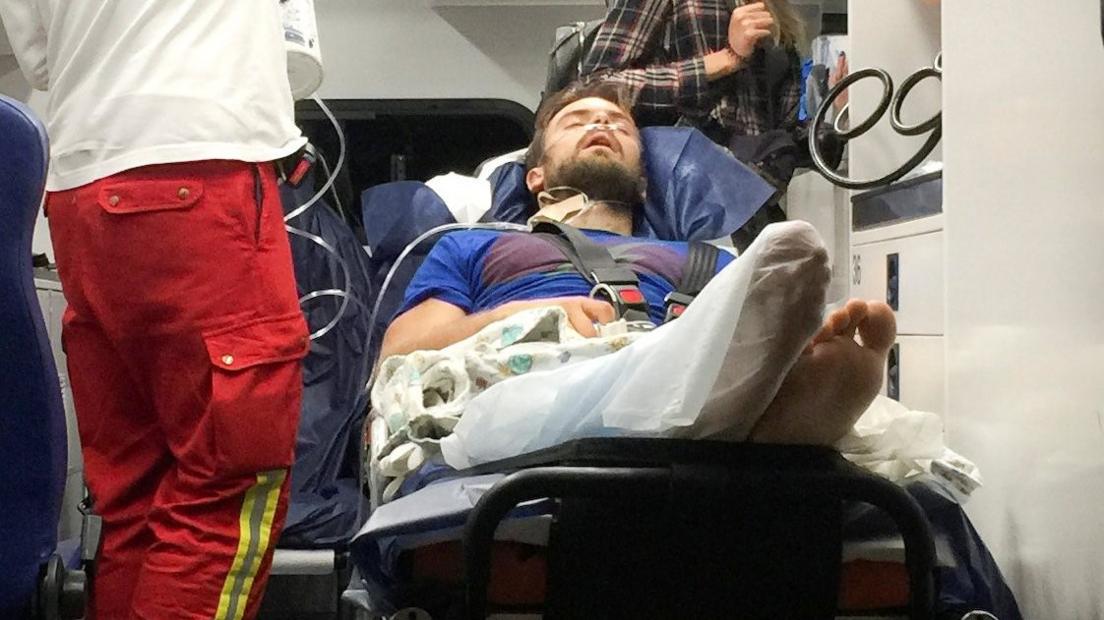
- Published21 July 2018
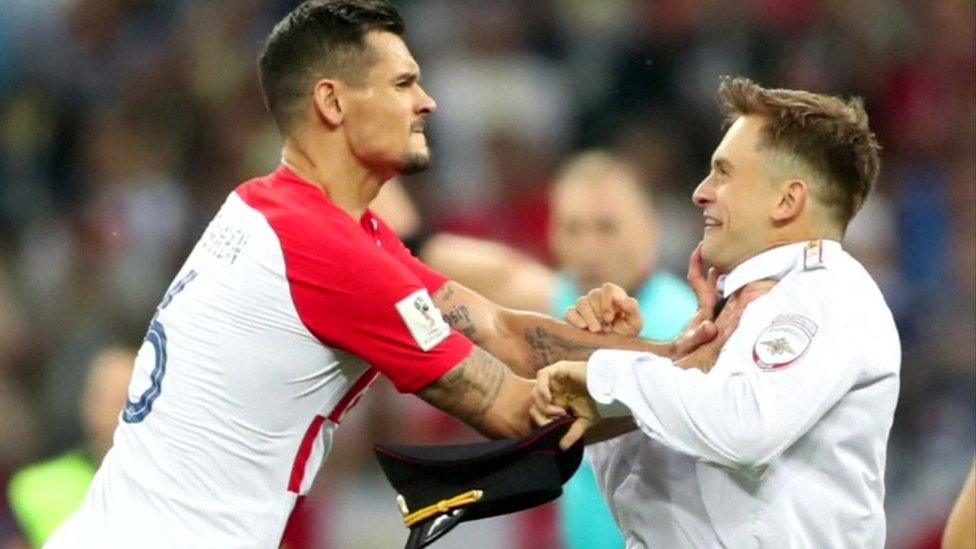
- Published23 December 2013
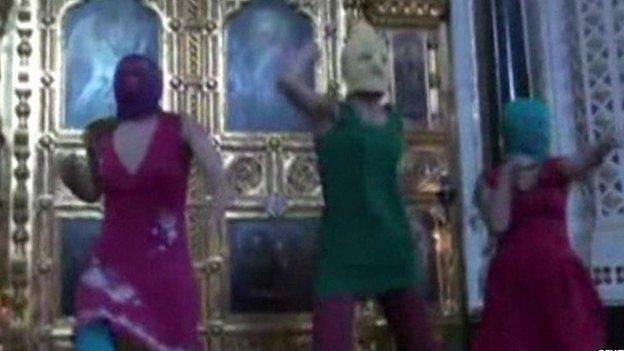
- Published2 October 2017
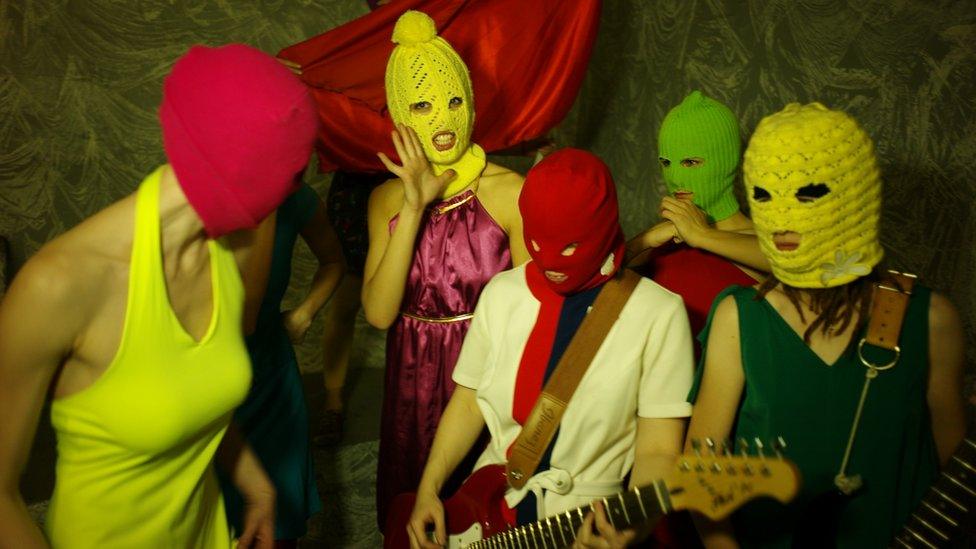
- Published17 July 2018
